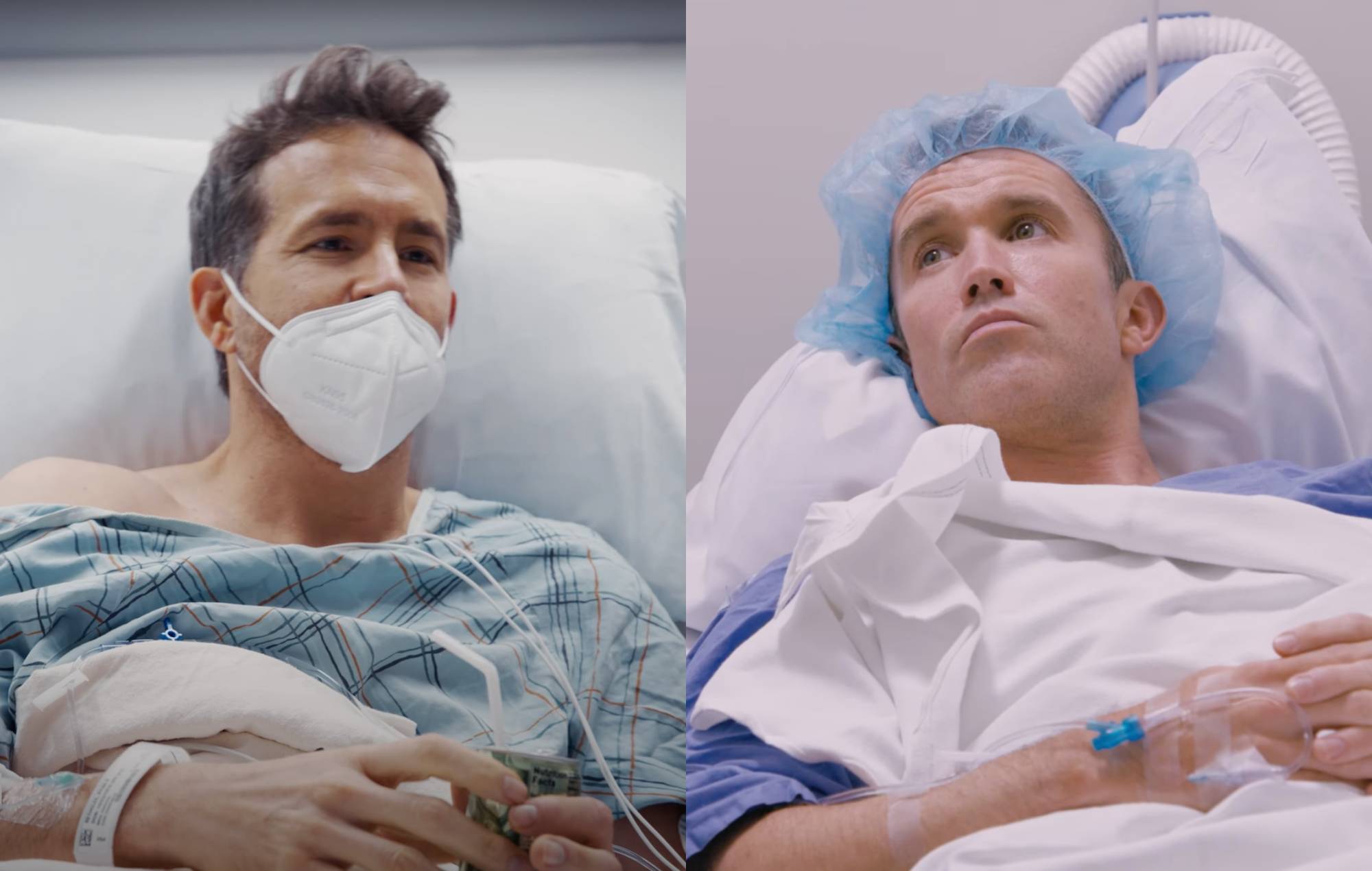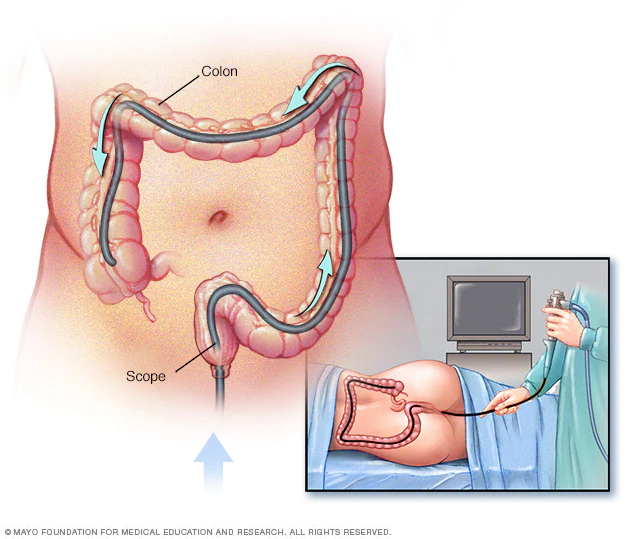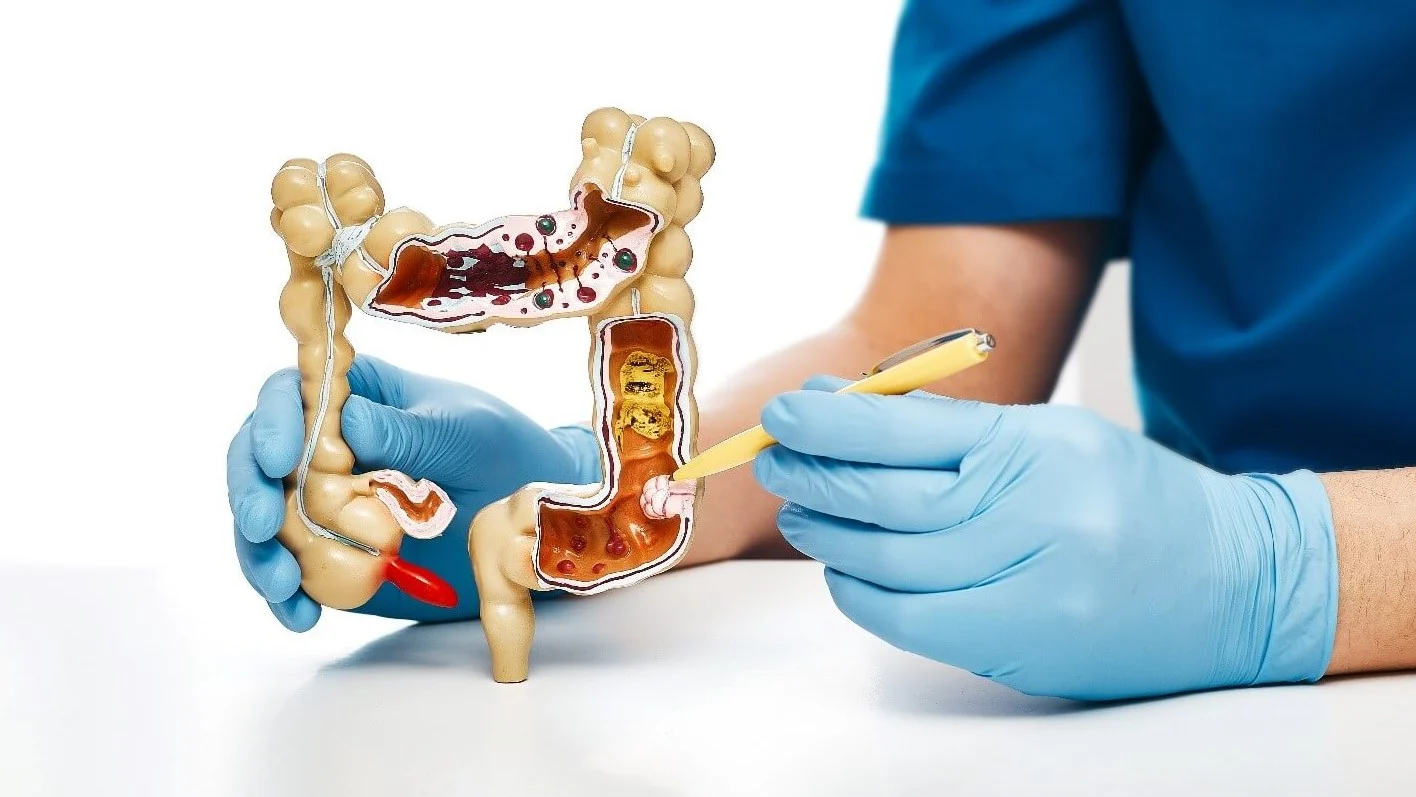By Charalampos Karouzos,
You have probably seen the video of the two owners of the north Wales-based Football club Wrexham that has been circulating the web for a while. If it does not ring a bell maybe you will be familiar with the two co-owners of the club, the Hollywood actors Ryan Reynolds and Rob McElhenney. The two posted a video explaining the bet they had placed a year ago, that should McElhenney learns to speak Welsh in one year, Reynolds must broadcast his colonoscopy. Certainty is a particular bet, but in the end, it was for a good cause, to raise awareness regarding colon cancer. Since both actors turned 45 this year it was time for their first examination regarding colorectal cancer (CRC). Although spreading awareness is undoubtedly beneficial for public health, colorectal cancer screening is unique as on-time screening can not only diagnose cancer in an early stage but even prevent its course, making it among the few preventable cancers.

To begin, colorectal cancer is a disease of the cells lining the internal aspect of the large intestine and the rectum, in which these cells grow out of control. The abnormal growths can be in the form of polyps which are mostly benign, however, some can lead to the formation of cancer. The reason why these cells fail to follow normal development is due to inheritance or acquisition during their lifetime, of genetic alterations named mutations, that drive these cells to abnormal growth. Prevention of mutations is not always possible as some diseases cannot be prevented but lifestyle modification can minimize the risk of cancer development. Individuals that have polyps are completely asymptomatic and symptoms may occur during cancerous development, with the primary one that concerns patients the most thus forcing them to seek medical attention being the presence of blood in the feces. However, blood in the feces is far from a pathognomonic feature of colorectal cancer, as it must be differentiated from many other conditions particularly difficult, especially in the endemic regions of many parasites that can have the same symptom, for example, schistosomes.
However, although the presence of visible blood in the feces may concern individuals and thus give rise to cancer diagnosis, it is not a sustainable means of preventing CRC. Individuals must be aware of the possible linkage between the symptom and the development of CRC but usually, such symptoms along with others develop in advanced stages of the disease, having poor prognosis and treatment is rarely curative. In fact, in the initial stages of cancer development (Tis, N0, M0) 5-year survival rate with treatment is 100%, whereas with more advanced stages, especially with invasive cancers with lymph nodes and distant sites involvement 5 years of survival rate drops to 5-31%, associated with other intraindividual factors.

The most powerful tool available today to fight off Colorectal cancer is prevention by implicating two simple steps, lifestyle modification, and screening. Firstly, lifestyle risk factors that are strongly associated with cancer development include the common proposal of doctors to exercise, maintain physiological weight, and have a healthy diet. In modern western societies, the work-life balance leans on the working side, along with the very rapid way of living, prohibiting the acquisition of better health. In fact, people tend to consume higher levels of cholesterol, red meat, and alcohol while decreasing whole grains that according to the World Cancer Research Fund have been linked with CRC development. In addition, the amount of exercise performed by the individual is directly associated with the mortality levels of cancer, with sedentary individuals being clearly at higher risk.
Although lifestyle factors have an established connection with the development of the disease and patients must follow a healthy active life to prevent the incidence of cancer, the most powerful tool available today to fight cancer formation is screening. Since the majority of colorectal cancers arise from polyps (80%), detection of the presence of asymptomatic benign polyps is beneficial. The most effective although least wanted procedure by the patient is the stigmatized colonoscopy or sigmoidoscopy. The procedure is straightforward, the large intestine is examined by a gastroenterologist by using a camera to visualize and a probe to resect any polyp that although benign may grow to become malignant. It is performed under general anesthesia and it lasts around 30 minutes. Patients do not experience any significant symptoms or discomfort during or after the screening and results will be communicated to the individual after a pathological examination.
It is by far the most widely used technique with the best data to back it up available. In addition, other novel techniques involving the usage of immunochemical techniques, advanced imaging (CTscan), DNA markers, and other biomarkers have been developed and used by patients, for which a traditional colonoscopy is not as beneficial, or their health status prevents the procedure.

It is easily understood that invasive screening methods such as colonoscopy are not only not preferred by patients but also many actively avoided, resulting in a great decrease in the number of individuals tested. As patients described it, they are uncomfortable with the nature of the procedure along with the requirement of changing their diet for some days and with the full day off required for the return to normal. However, it is crucial to balance these issues with the benefit gained by the patient, the second highest in morbidity cancer can be as some gastroenterologists’ support, completely prevented and cured. Patients may for some days deal with subtle changes in their lifestyle but in the long run, is a great investment in themselves. In fact, it is speculated that if every individual followed the guidelines regarding CRC screening cases would drop making the disease rare.
Concludingly, maybe placing a bet with a friend about a colonoscopy broadcast is your motivation for doing the first step and doing the exam, but most probably it is not. In either case, spreading awareness and knowledge regarding the importance and the effectiveness of this simple exam is beneficial to public health as the second highest mortality cancer can be directly diagnosed and treated. It is normal to be scared of the procedure and the results but remember, blowing your birthday cake with the number 45 on it means it is time to call your clinic and arrange your exam. As Rob McElhenney states in their colonoscopy video, it is a win-win situation and you have nothing to lose.
References
- What is colorectal cancer?. cdc.gov. Available here
- Lead From Behind. leadfrombehind.org. Available here
- Rob & Ryan Lead From Behind. YouTube.com. Available here




